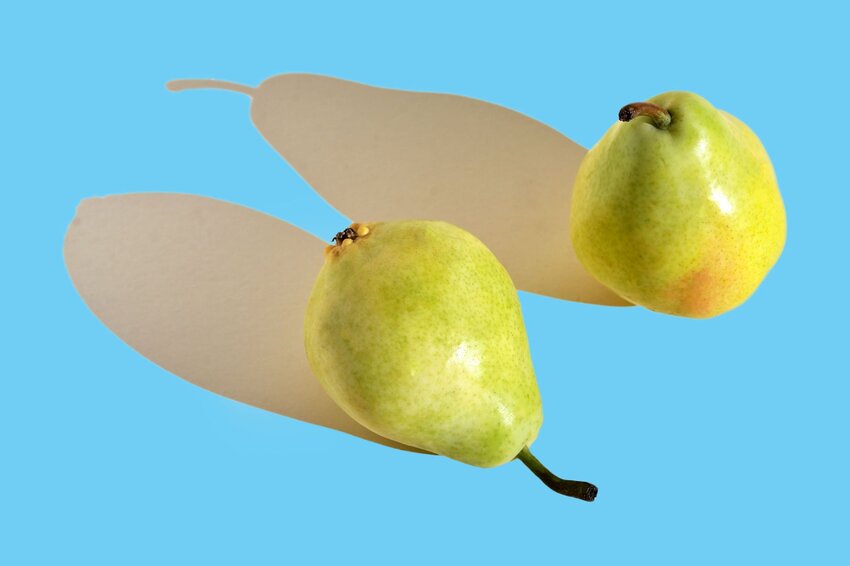Thanks to homonyms, you can sink a ship, but you can also ship a sink. Homonyms are words that have the same spelling and pronunciation, but different meanings. This term comes from the Greek for homos- (same) and -onyma (name). An example of a homonym is the word “tire,” which is a part of a car or a verb for growing weary. Homonyms are not to be confused with homophones, words that have the same sound but different spelling, such as “know” and “no” or homographs, words that have a different sound but the same spelling, such as “bass” (guitar) and “bass” (fishing). Since homonyms have the same spelling and pronunciation, they’re more frequently confused. Let’s take a look at some very different meaning homonyms.
Pine
In modern English, “pine” can mean two very different things. Hikers are likely to come across forests of pine trees, a genus of evergreen tree that takes center stage during the Christmas holidays, or as material for furniture and flooring. As a verb, “to pine” means to yearn for someone or something, as in, “The dreary weather made her pine for some sunshine.” Though they are spelled and pronounced the same, these words come from two different origins. The noun comes from the Latin word pinus, while the verb comes from the Old English word pīnian, meaning, “to suffer.”
Fell
Children learned this verb when singing about how Jack and Jill fell down the hill, but it has a few additional meanings. “In one fell swoop” is a common idiom that has nothing to do with falling. It means “all at once,” using the adjective “fell,” which is synonymous with “fierce,” “sinister,” or “destructive.” In Scotland, “fell” means “sharp,” and in England, it can mean a high, barren field. All forms of this word (noun, verb, and adjective) stem from Middle English.
Air
“Air” — it can be the air in the sky, an air of mystery, or an airing of grievances. For centuries, the word “air” has been related to the sky, coming from the Latin aer (sky) and Greek aēr (mist, haze, or clouds). More recently, “air” has been used to describe the general appearance or impression of something, as in, “The estate had an air of luxury.” This comes from the Old French aire (reality or essence). As a verb, one can “air their complaints,” or, announce them. “Air” is also related to broadcasting, as in, “The radio station aired the new hit song.” “Air” also has a few homophones (words that sound the same but are spelled differently): “heir” (a person with an inheritance) and “ere” (before).
Novel
The author had a novel idea for her next novel — a new idea for her book. The use of the word as an adjective stems directly from the word “new” in Old French: nouveau. As a noun, it was borrowed from the Italian word novella (describing a short prose narrative). Today, the word describes both a longer narrative and a literary genre.
Fair
A fair is a place, typically filled with people, food, drinks, and lots of entertainment. Or, it can be a place for trade or purchasing, such as a book fair. It comes from the Latin feriae, meaning “holidays.” As an adjective “fair,” can mean honest (a fair trial), sufficient (a fair understanding), or decent (fair) weather. For centuries, the word has also been related to beauty, as in “a fair maiden.” This comes from the Old High German word fagar, meaning “beautiful.”
Bow
“The sailors bowed to the Queen standing near the bow of the ship.” Stemming from Old English, “bow” has been used for centuries as a nautical term for the forward part of a ship. Its other use, a sign of respect (or simply bending over), “bow” comes from Old High German biogan, meaning, “to bend.” Figuratively, someone can also “bow out” of a competition, meaning, ending their participation. “Bow” also has a few homographs: “bow” (and arrow) and “bow” (tie).
Quarry
A quarry is a place where stones are removed from the earth, or it is another word for something that is being chased. The first (more common) definition comes from the Latin quadrus, meaning “squared stone” — a fitting name for a place where stones and minerals are excavated. Its lesser-used definition relates to a game or a hunt, as in, “The mouse was an easy quarry for the hawk,” or “The detective finally found his quarry.” The etymology of this word comes from Middle English quire (the name of the entrails given to hounds after a hunt).
Foil
If a detective foils a criminal’s plan, they are preventing the plan from happening, not wrapping them in a thin sheet of metal. The latter definition comes from the Latin folia (leaf) but the homonym was used more recently (since the 14th century) in French as foile to describe a very thin sheet of metal. To foil a plan is much different. It comes from the early 14th-century word foilen which meant, “to spoil a trace or scent by running over it.”
Featured image credit: mady70/ iStock

